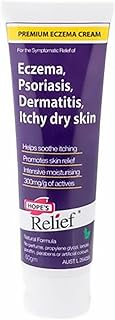Eczema, a chronic skin condition characterized by dry, itchy rashes, can be triggered by various factors, including allergens, stress, and dietary choices. Among these triggers, certain foods have been identified to exacerbate eczema symptoms, particularly in individuals with atopic dermatitis, the most prevalent form of eczema.
Milk, eggs, and soy are commonly associated with eczema flare-ups. Milk, a known allergen, can lead to inflammatory responses in the body, including eczema. Similarly, eggs contain proteins that may trigger eczema in allergic individuals. Soy, present in various processed foods, can also worsen eczema symptoms, with some studies linking soy allergies to atopic dermatitis.
Additionally, wheat, fish, shellfish, peanuts, tree nuts, tomatoes, and citrus fruits have been identified as potential eczema triggers. These foods may elicit allergic reactions or intolerances that manifest as eczema flare-ups in susceptible individuals. For instance, gluten in wheat can exacerbate eczema in people with celiac disease or gluten sensitivity, while proteins in fish and shellfish can induce allergic responses associated with chronic eczema lesions.
Understanding why food triggers eczema is crucial. Allergies and intolerances can prompt immune system reactions that contribute to skin inflammation. Food allergies, characterized by immune system overreactions to specific foods, can lead to rapid symptoms, while food intolerances, often dose-dependent, may result in delayed skin reactions like eczema.
To manage eczema effectively, adopting a diet rich in fruits, vegetables, healthy fats, and lean proteins is recommended. Probiotic-rich foods can also support gut health, potentially reducing inflammatory conditions like eczema. Anti-inflammatory diets such as the Mediterranean, DASH, Okinawan, and Nordic diets have been associated with alleviating eczema symptoms by reducing inflammation and supporting digestion.
Identifying personal food triggers is essential for managing eczema. Various methods, including allergy testing, food diaries, and elimination diets, can help pinpoint specific foods that worsen eczema symptoms. Consulting healthcare providers for guidance on dietary modifications and identifying trigger foods is crucial for developing a tailored approach to managing eczema.
In conclusion, while eczema triggers can vary among individuals, dietary choices play a significant role in exacerbating symptoms. By understanding and addressing food triggers, individuals with eczema can better manage their condition and improve their overall skin health.
📰 Related Articles
- Top Eczema Creams: Dermatologist-Approved Relief for Sensitive Skin
- Longevity Expert Reveals Foods to Avoid for Healthier Life
- Diverse Allergy-Friendly Foods Cater to Dietary Restrictions
- Whole Foods Custom Cakes: Quality and Personalization for Every Occasion
- Violet Bakery: Crafting Stunning Wedding Cakes for Dietary Needs






